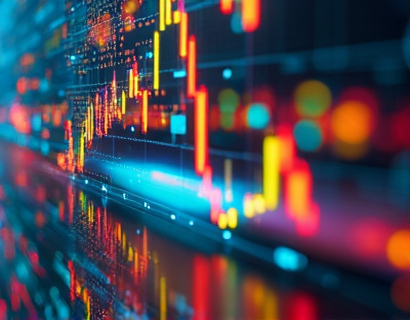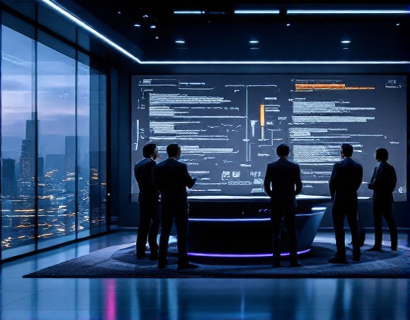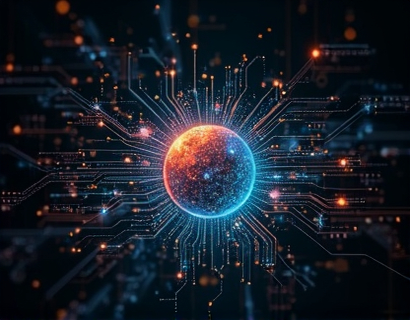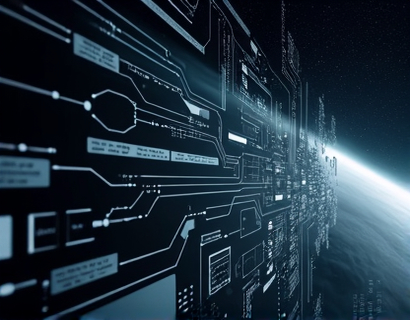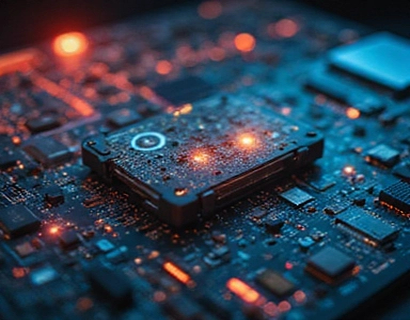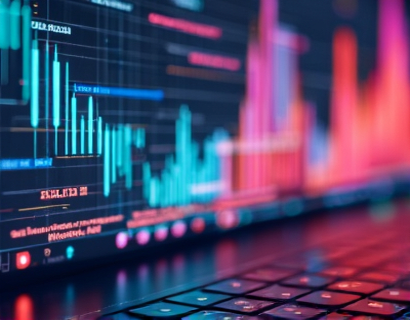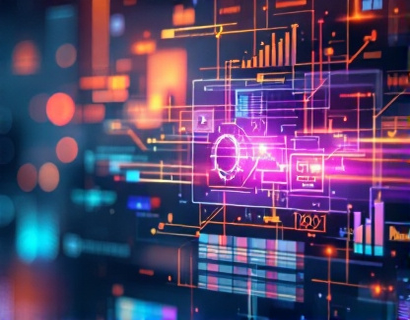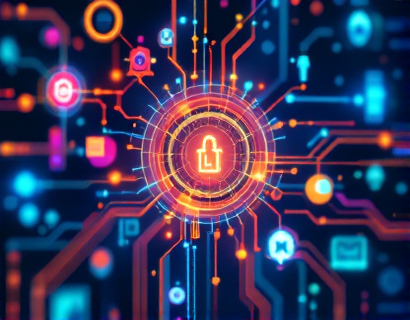AI and Crypto: Catalyzing the Future of Digital Finance with Intelligent Synergy
The intersection of artificial intelligence (AI) and cryptocurrency is redefining the landscape of digital finance. This synergy is not just a trend but a transformative force that is revolutionizing how we perceive, interact with, and utilize financial systems. As tech enthusiasts and innovators, understanding this fusion is crucial for grasping the future of FinTech. This article delves into the intricate ways AI and crypto are merging to create intelligent solutions that are reshaping financial interactions.
The Emergence of AI in Cryptocurrency
The journey of AI in cryptocurrency began with basic algorithms and has evolved into sophisticated systems capable of complex decision-making. Initially, AI was used for simple tasks such as price prediction and market analysis. Early models relied on historical data to forecast future trends, providing traders with insights to make informed decisions. However, these early applications were limited by the data available and the computational power of the time.
As AI technology advanced, so did its applications in the crypto space. Machine learning algorithms, a subset of AI, began to play a significant role. These algorithms can learn from vast amounts of data, identifying patterns and making predictions with increasing accuracy. For instance, natural language processing (NLP) has been instrumental in analyzing news articles, social media posts, and other textual data to gauge market sentiment. This sentiment analysis helps in predicting price movements, offering a more nuanced approach to market analysis.
Enhanced Security through AI
Security is a paramount concern in the crypto world, and AI has emerged as a powerful ally in this domain. Traditional security measures often struggle to keep pace with the evolving tactics of cybercriminals. AI-driven security solutions, however, can adapt and respond in real-time to emerging threats. These systems use anomaly detection to identify unusual patterns that may indicate a security breach. By continuously learning from new data, AI can improve its detection capabilities over time, providing a dynamic and robust defense mechanism.
Furthermore, AI can enhance the authentication process through biometric verification and behavioral analysis. For example, machine learning models can analyze user behavior, such as typing patterns and device usage, to verify identities with high accuracy. This not only strengthens security but also enhances the user experience by reducing the need for cumbersome password management.
Smart Contracts and AI Integration
Smart contracts, self-executing contracts with the terms directly written into code, have been a cornerstone of blockchain technology. The integration of AI with smart contracts takes this concept to the next level. AI can be used to create more sophisticated and adaptive smart contracts that can make decisions based on real-time data and conditions. This capability opens up new possibilities for automated and trustless transactions.
For instance, AI can analyze market conditions and automatically execute trades based on predefined criteria. This not only increases efficiency but also reduces the risk of human error. Additionally, AI can help in detecting and preventing fraudulent activities by monitoring transactions and identifying suspicious patterns. This intelligent oversight ensures that smart contracts operate securely and reliably.
Personalized Financial Services
One of the most exciting applications of AI in the crypto space is the creation of personalized financial services. AI algorithms can analyze individual user data, including financial history, risk tolerance, and investment goals, to provide tailored recommendations. This level of personalization is particularly valuable in a market as diverse and complex as crypto, where one-size-fits-all solutions often fall short.
Robo-advisors powered by AI are becoming increasingly popular, offering users automated investment management with a touch of human-like intuition. These platforms can adjust investment strategies in real-time based on market conditions and user preferences, providing a dynamic and responsive financial experience. This not only democratizes access to sophisticated investment tools but also empowers users to make more informed decisions.
Decentralized Finance (DeFi) and AI
Decentralized Finance (DeFi) has emerged as a revolutionary force in the crypto ecosystem, offering decentralized alternatives to traditional financial services. AI plays a crucial role in enhancing the functionality and efficiency of DeFi platforms. For example, AI can optimize liquidity management by predicting asset flows and adjusting liquidity pools accordingly. This ensures that DeFi protocols remain stable and accessible, even during periods of high volatility.
AI-driven risk assessment tools can also help in evaluating the creditworthiness of users in decentralized lending platforms. By analyzing a wide range of data points, these tools can provide more accurate risk assessments, reducing the likelihood of defaults and enhancing the overall stability of the DeFi ecosystem. This intelligent risk management is essential for the widespread adoption of DeFi solutions.
Market Efficiency and AI
The integration of AI in crypto markets is not just about enhancing individual transactions but also about improving market efficiency. AI algorithms can process and analyze vast amounts of data in real-time, identifying inefficiencies and arbitrage opportunities. This leads to more efficient price discovery and better allocation of resources.
Moreover, AI can help in reducing market manipulation by detecting and mitigating pump-and-dump schemes and other fraudulent activities. By monitoring trading patterns and identifying anomalies, AI systems can alert regulatory bodies and market participants, promoting fair and transparent markets. This increased transparency is vital for building trust and encouraging broader adoption of crypto assets.
Challenges and Considerations
While the potential of AI in the crypto space is immense, there are several challenges and considerations that must be addressed. One of the primary concerns is the regulatory landscape. As AI and crypto continue to evolve, regulators are grappling with how to oversee these innovative technologies. Ensuring compliance while fostering innovation is a delicate balance that requires careful consideration.
Another challenge is the ethical use of AI. The deployment of AI in financial systems raises questions about privacy, bias, and transparency. It is crucial to develop AI systems that are ethical, transparent, and accountable. This includes implementing robust data governance practices and ensuring that AI decisions can be audited and explained.
Technical challenges also persist, such as the need for scalable and secure infrastructure to support AI-driven applications. The crypto space is known for its high transaction volumes and the need for low latency, making it essential to develop AI solutions that can operate efficiently under these conditions.
The Future of AI and Crypto
Looking ahead, the synergy between AI and crypto is poised to drive significant advancements in the FinTech industry. As AI technologies continue to mature, we can expect even more sophisticated applications in areas such as predictive analytics, fraud detection, and automated trading. The integration of AI with blockchain beyond smart contracts, such as in data management and consensus mechanisms, holds great promise.
Moreover, the rise of central bank digital currencies (CBDCs) and their potential integration with AI could redefine national monetary systems. AI can help central banks manage and optimize CBDC issuance, ensuring stability and efficiency in the digital currency ecosystem. This could lead to a more inclusive and accessible financial system, bridging the gap between traditional and decentralized finance.
In conclusion, the fusion of AI and crypto is not just a technological trend but a fundamental shift in how we approach digital finance. By leveraging the strengths of both domains, we can create intelligent, secure, and efficient financial systems that empower users and drive innovation. As we navigate this exciting frontier, it is essential to stay informed and adapt to the evolving landscape.




